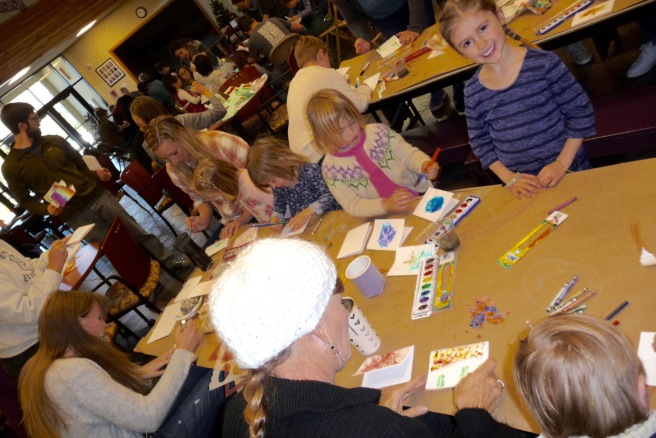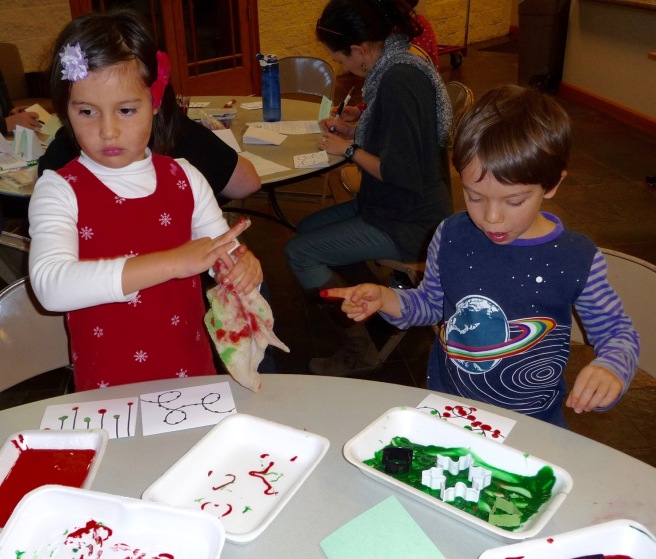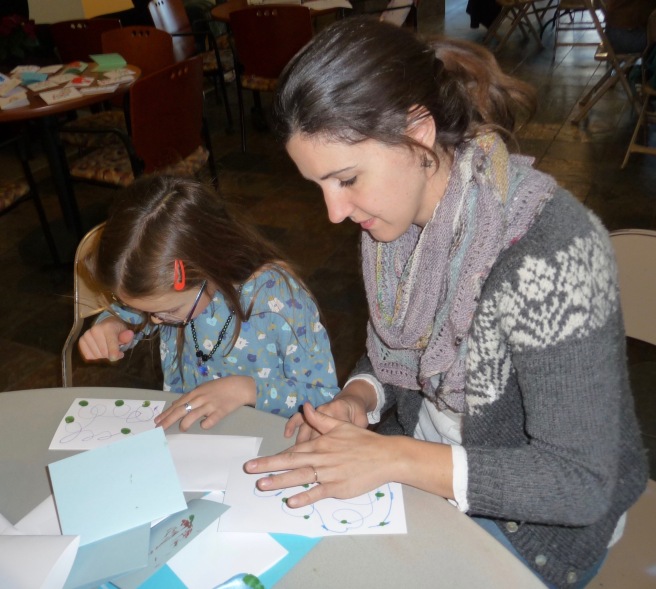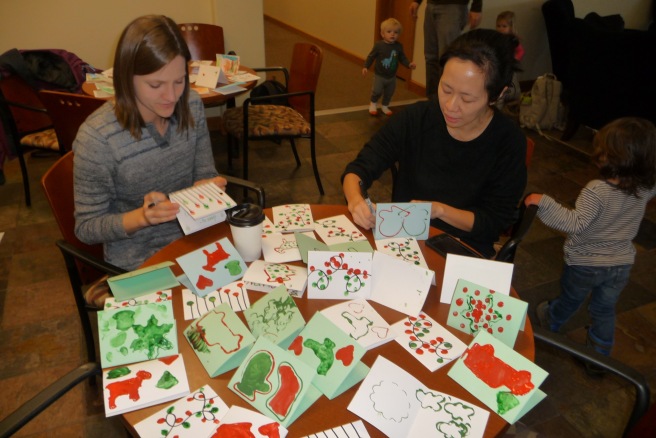Though I’ve discovered it only in the last eight years, Las Posadas has found a place in my heart as a beloved Christmas tradition. I’ve been participating in the local celebration sponsored by Catholic Charities since its beginning, more recently helping on the planning team. Each year we think the celebration could not possibly be more timely and relevant to current events. And then the next year something even worse happens in our world, targeting refugees or other immigrants.
Migrant caravans are nothing new. In Exodus 13 in the Old Testament, Moses led thousands of Hebrew people out of the land of Egypt into the wilderness. The people traveled together for 40 years, and migrated again after that as they were led in and out of captivity.
Mary and Joseph probably did not travel alone to Bethlehem. “In those days Caesar Augustus issued a decree that a census should be taken of the entire Roman world…. And everyone went to their own town to register” (Luke 2:1,3, emphasis mine). With everyone in the entire Roman world required to report to their hometowns, it’s unlikely that Mary and Joseph would have been the only people traveling between Nazareth and Bethlehem at that time. Then as now, it would have been considerably safer for vulnerable people to travel in groups than alone. Women, children, expectant families. They did not have the police escort that we enjoyed at our Las Posadas celebration, so they likely would have sought out traveling companions to offer protection on the journey.
Las Posadas is a traditional hispanic celebration remembering Mary and Joseph’s journey to Bethlehem and their search for a place for Jesus to be born. Last night as almost 200 pilgrims processed around the block with candles—forming our own caravan of sorts— we sang:
En el nombre del Cielo
os pido posada,
pues no puede andar
ya mi esposa amada.In the name of Heaven
I beg you for lodging,
for she cannot walk
My beloved wife.
The parallels between Mary and Joseph’s journey to Bethlehem and thousands of Latin Americans traveling north seeking asylum were more than obvious as we walked in the cold night. My five-year-old friend Samuel said he didn’t like the walk because he was so hungry, nobody would let us inside, and it was cold. Samuel’s observations and the response at the doors where we requested posada (shelter) also had parallels with how migrants are treated today:
¡Ya se pueden ir
y no molestar
porque si me enfado
los voy a apalear!Go already
and don’t disturb me
because if I get angry
I’ll beat you up!
At last the pilgrims were welcomed inside with a joyful song:
Entren santos peregrinos,
Reciban este rincón;
Que aunque es pobre la morada,
Os la doy de corazón.Enter holy pilgrims,
Receive this corner;
For though this dwelling is poor,
I offer it from the heart.
This year’s celebration of Las Posadas was not only more poignant than ever, but also the most international that we’ve celebrated locally. Every year participants tell us that Las Posadas was the best celebration yet. Entertainment this year included:
- a group of flute players regaling us with Christmas carols;
- Las Estrellitas, traditional Mexican dancers;
- La Rondalla De Colores, a traditional Spanish guitar ensemble;
- Agape Choir, Swahili singers from a local congregation;
- and a Filipino-American dance troupe.
The fajitas from Leonela’s Carniceria were riquisimo, as usual. Leonela’s also donated gorgeous piñatas for the decorations. La Sinaloense provided amazing tres leches cake. Volunteers from throughout the community helped hang the decorations, serve the food, and clean up. Mil gracias to everyone who helped.
Today my friends Michelle Warren, Nate Bacon, and other faith leaders from around the country are at the southern border standing in solidarity with our Latin American brothers and sisters who are seeking asylum there. Michelle wrote:
Yesterday I was with Father Pat who runs Casa del Migrante in Tijuana and is one of the leaders for this gathering. When we were speaking about today’s event, he solemnly said: “We are not playing posadas. Everyone with a door can open it. There’s no better place for posadas than at the US/Mexican Border.”
We cannot just bear witness to this present reality. We must prophetically and urgently cry out to open the door.
At the very least we can sign on and share the opportunity for others to sign onto this Congressional letter. Our lame duck Congress needs to be pressed to spend their last week working toward just and equitable solutions for asylum seekers and immigration issues facing our country today. Thank you Sandy Ovalle for writing the letter and giving us opportunity to join this request.
https://secure3.convio.net/sojo/site/Advocacy?cmd=display&page=UserAction&id=1248
Injustice doesn’t just happen, nor does it fix itself. We need to make intentional, forward steps toward its alleviation.
May the asylum seekers waiting at our border receive as warm a welcome as did the pilgrims at Las Posadas.
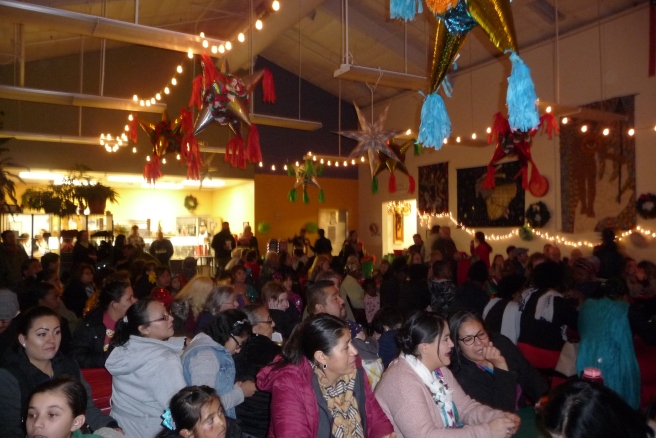


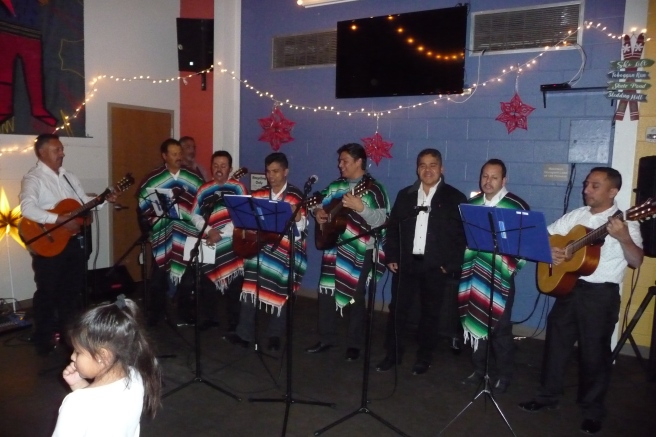

See coverage of Las Posadas from the Colorado Springs Gazette here:
https://gazette.com/multimedia/las-posadas/collection_a2af7a36-0017-11e9-bf3c-237b69eb8608.html#1


